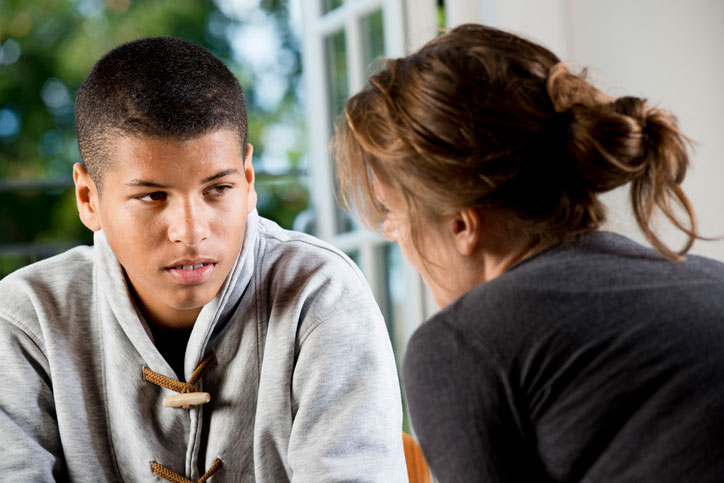Written by Scott Wilson

Juvenile and youth social work practice evolves quickly. Social workers dealing with children, adolescents, and young adults find that their skillsets have to move just as quickly to keep up.
Every generation has its own challenges. Social workers that deal with the part of the population that is coming of age at any particular moment tackle the issues that most impact these young folks.
For Generation Alpha, that’s been a mix of social factors ranging from pervasive social media use to COVID-19. Issues of social isolation, depression, disconnection, and delayed development all bring them right into the wheelhouse of clinical social workers across New York.
If you show up for work without knowing the latest YouTube famous rappers, you’re going to have a hard time connecting.
But this is a role that not every social worker can just step into. On top of being one of the most important roles in social work by helping people in their most formative years, it’s also a role that requires intense communication and relationship-building skills.
So education is a critical part of becoming a New York social worker for adolescent, child, and young adult issues.
What Does the Role of the Social Worker in Adolescent and Young Adult Services in New York Involve?
This area of practice is very close to child and family support social work, but there are important differences.
Child and family social workers are more concerned with matters of custody and wellness. They are called in to deal with situations of abuse or neglect, and they most often work for various government agencies that have legal responsibilities for child welfare.
A focus on adolescents and young adults, on the other hand, focuses more on independence and the transition to adulthood. These roles involve a lot more engagement and outreach. They make an effort to reach kids on their own terms, and offer them the support that they feel they need to achieve comfortable, fulfilling lives.
So social workers in this specialization engage in a lot of individual therapeutic work. This includes:
- Making assessments of mental wellness and risk factors for kids and young adults
- Creating treatment plans in concert with other human services and healthcare professionals
- Developing and administering group programs and outreach efforts designed to connect with kids
- Handling crisis intervention
- Engaging in direct psychosocial therapy to help kids overcome challenges
They deal with heavy issues like:
- Advocacy and support through court proceedings
- Substance use disorders
- Bullying and peer pressure
- Gender issues, including gender-affirming care
- Homelessness
- Food assistance
- Integration issues for refugees and immigrants
Program management and advocacy roles are also common. These jobs can involve putting together or running existing youth outreach and engagement programs, or lobbying for funding or additional services for juveniles.
Recognizing the Need for New Services for the Next Generation in Juvenile Social Work
 Adolescent social workers dealing with gang violence prevention and the realities of New York City social structures recognize the truth of Michael Corleone’s rant from The Godfather in the lives of kids they work with every day:
Adolescent social workers dealing with gang violence prevention and the realities of New York City social structures recognize the truth of Michael Corleone’s rant from The Godfather in the lives of kids they work with every day:
“Just when I thought I was out, they pull me back in!”
Getting sucked into gang life is easy on some streets. Many kids realize before long that it’s not for them, but it’s not that easy to get back out.
That’s particularly true once they have been branded or tattooed with gang signs. Sex trafficking victims face the same brutal truth. With an indelible mark of what someone decided you once were, it’s hard to become who you want to be.
Social workers recognizing this reality have been driving a simple but necessary solution: free tattoo removal services for survivors of sex trafficking or gang membership.
Various non-profit organizations started up across the New York region with this objective, but the movement got a boost in 2018 when the NYC Administration for Children’s Services started an official pilot program to found the NY Child Tattoo Eradication Network. Running with complete confidentiality, social workers help children, teens, and young adults start with a literally blank slate to move on from trauma and exploitation.
Because they work with a population that is notoriously hard to connect with, innovation is the name of the game for youth social workers. You’ll find positions that call for MSW social workers with theater expertise who help put on and advise middle school play performances in Central Park… youth adventure mentorship jobs that shepherd at-risk kids on boat trips in the Thousand Islands in the summers… or jobs that take you into homes to deliver treatment traditionally only offered in residential facilities in a bid to help keep families and support structures together for kids in crisis.
Looking at MSW Specializations To Qualify You for Roles in New York Juvenile Social Work

Most of these positions are clinical in nature, which means your path to getting into this social work role runs directly through an accredited Master of Social Work degree program. An MSW is a requirement for both LMSW (Licensed Master Social Worker) and advanced LCSW (Licensed Clinical Social Worker) credentials in New York.
Just as important, the kind of specialized education you can pick up in the right MSW program is your best preparation for connecting with children and young adults.
So you’ll want to find a school that offers an MSW concentration track such as:
- Children and Families
- Health Across the Life Span
- Individuals and Families
- Clinical Practice with Individuals, Families, and Groups
- Child and Family Welfare
- Creative Arts and Healing
It’s also possible, depending on the specific kind of youth social work you hope to do, to get good value out of other specializations in fields like Mental Illness, Creative Arts and Healing, or Trauma Informed Practice.
Mainly, however, concentrations that focus on youth and children social work will give you the special set of tools you need to connect with and treat those tough-to-handle populations. That comes through coursework in:
- Human Development Across the Lifespan
- Core Concepts in Child and Adolescent Trauma
- Advanced Social Work Practice With Groups
- Advocacy for Children and Families
You’ll also get a shot at practicing social work in the field through practicum and internship opportunities embedded in these degree programs. Placements at New York nonprofits like Getting Out Staying Out, which works with juvenile offenders to reduce recidivism, or government programs like the NYC Summer Youth Employment Program, develop your social work skills while helping kids take their first steps toward a productive future.
Professional Certification Cements Your Expertise in Adolescent Social Work
While the right education is critical, there’s a lot more that goes into mastering any social work specialization. Earning a professional certification from the National Association of Social Workers (NASW) in your chosen area of expertise signals to both clients and employers that you have gone the extra mile to get qualified for work with juveniles.
The closest fit comes with the Certified Advanced Children, Youth, & Family Social Worker (C-ACYFSW) credential.
While there is also a baseline CYFSW credential available, it’s not common in New York because it is aimed at bachelor’s level social workers, who do not have a license level available in this state.
This covers your skills in advocacy, policy, program development and evaluation, and eduction in improving the social and psychological welfare of kids and their families across settings.
To earn it, you’ll need to:
- Show up with your CSWE-accredited Master of Social Work diploma
- Rack up at least 20 post-graduate contact hours of training in children and family social work
- Build at least two years of paid post-MSW experience in the field
- Have your LMSW or LCSW in the bag
- Follow the strict NASW Code of Ethics and conform to continuing ed standards
Another option is to become Board Certified in Clinical Child and Adolescent Social Work by the American Board of Clinical Social Work (ABCSW), which has similar criteria. You’ll need at least 5 years of experience and also have to provide evaluations from two colleagues with respect to your practice.
More information about other professional certifications and in-depth information about the process can be found on our social worker professional certification page.
What Organizations Hire Social Workers in Youth and Adolescent Development Work?

Choosing a specialized social work role goes hand in hand with deciding what kind of social work career you plan to have here in New York. Your daily experience on the job is heavily influenced by not just the population you work with, but by the kind of organization you end up working for.
Juvenile and young adult social workers are more likely to work for non-profit organizations than directly for government agencies.
There’s a wide range of potential focus areas in this field, and the jobs reflect that. Many revolve around either specific types of social work supports or particular sub-populations. You’ll find job titles that include:
- Bilingual Youth Care Worker
- Social Worker, Youth Engagement
- Outreach Worker - Youth Services
- Activity Specialist - Social Worker
- Social Worker - Afterschool
You can learn more about the average compensation for social workers in these roles and beyond on our New York social worker salary page.
Because kids and young adults can run into many of the same challenges as their older brothers and sisters in marginalized populations, there are also youth specialist social workers in settings such as:
- Hospitals and health care facilities
- Juvenile justice advocacy organizations
- Substance use disorder treatment facilities
- Homeless and domestic violence shelters
They are all critical positions working with one of the most sensitive population that social workers deal with. The right training and attitude can make all the difference in the world for kids on the cusp of adulthood.
